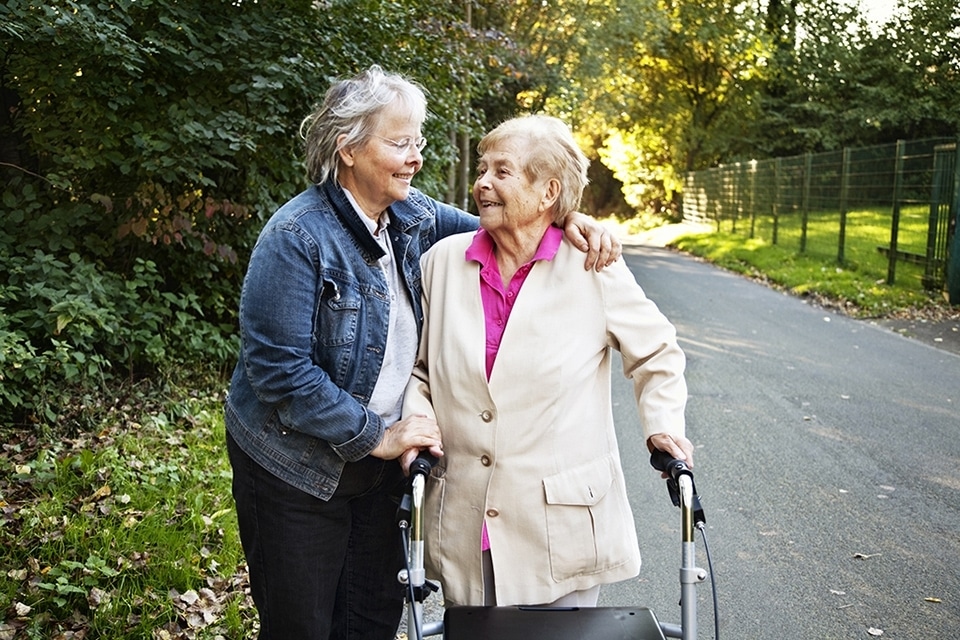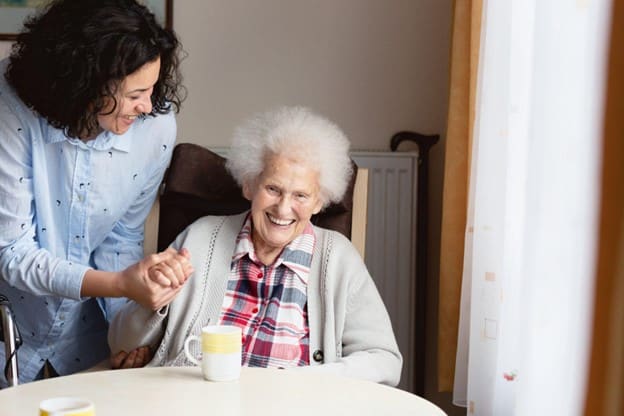10 Signs Your Elderly Parent Needs Help

Important Signs Your Parent Might Need Help
As our loved ones age, it becomes increasingly important to pay close attention to their well-being and ensure they receive the care and support they need. Caring for elderly parents involves a delicate balance of respect, compassion, and vigilance. Here, we’ll explore the subtle yet crucial signs that may indicate your elderly parent requires additional assistance.
These indicators can offer valuable insights into their health and overall quality of life, from physical appearance to shifts in daily habits. By recognizing these signs early on, you can take proactive steps to address their needs, fostering a safe and comfortable environment for your aging loved ones.
Indicators that Your Elderly Parent Needs Some Extra Support:
1. Changes in Physical Appearance
Noticeable changes in weight, hygiene, or overall appearance may indicate that your elderly parent is struggling with personal care. This could be caused by physical limitations, pain, or difficulty maintaining their grooming routine.
2. Forgetfulness and Memory Issues
Persistent forgetfulness, confusion, or memory problems might suggest cognitive decline, such as Alzheimer’s disease or other dementias. It is essential to monitor if these lapses impact daily activities and decision-making.
3. Difficulty Managing Medications
If your parent is having trouble adhering to their medication schedule or seems confused about their prescriptions, it could pose a significant health risk. This may indicate a need for a more organized system or external assistance.
4. Decline in Housekeeping
A sudden decline in the cleanliness and orderliness of their living space may signal challenges in maintaining the home. This could be because of physical limitations, fatigue, or cognitive issues affecting their ability to manage household tasks.
5. Isolation and Withdrawal
Social withdrawal or a sudden lack of interest in activities they once enjoyed may indicate loneliness, depression, or physical limitations. Maintaining social connections is crucial for mental well-being, so changes in social behavior should be addressed.
6. Unexplained Bruises or Injuries
Frequent unexplained bruises or injuries may be a sign of mobility issues, falls, or accidents. Investigate the root cause and take steps to prevent further incidents, such as modifying the home environment or introducing assistive devices.
7. Changes in Eating Habits
Shifts in eating habits, such as sudden weight loss, decreased appetite, or difficulty preparing meals, may indicate underlying health issues. Nutritional deficiencies can have a significant impact on overall well-being.
8. Difficulty with Mobility
Trouble with balance, unsteady walking, or difficulty moving around the house may pose a risk to their safety. Promptly addressing mobility issues can involve physical therapy, assistive devices, or modifications to the home to enhance accessibility.
9. Neglected Finances
Consistently unpaid bills, financial disorganization, or signs of financial mismanagement may indicate cognitive decline or difficulty handling finances independently. It is crucial to assess their financial situation and provide support as needed.
10. Frequent Falls or Accidents
An increase in the frequency of falls or accidents may indicate physical frailty, balance issues, or environmental hazards. Taking measures to prevent falls, such as installing handrails or removing tripping hazards, can improve safety.
Being proactive and addressing these signs early on can contribute to a better quality of life for your elderly parents and help them maintain independence while receiving the necessary support.
How to Approach the Conversation With Your Parents
Broaching the topic of additional assistance with aging parents requires sensitivity, empathy, and effective communication. Initiating this conversation can be challenging, but it’s a crucial step toward ensuring their well-being. Here are some thoughtful approaches to guide you through discussing the signs you’ve observed and exploring the support they may need.
1. Choose the Right Time
Timing is key. Pick a quiet and comfortable setting where you can have an uninterrupted conversation. Ensure your parents are relaxed and receptive before broaching the subject.
2. Express Concerns Positively
Start the conversation by expressing your love and concern. Frame your observations in a positive light, emphasizing your desire to ensure their safety, well-being, and continued independence.
3. Use “I” Statements
Share your feelings and observations using “I” statements to avoid sounding accusatory. For example, say, “I’ve noticed some changes in your daily routine,” rather than “You’re not taking care of yourself.”
4. Focus on Specific Observations
Refer to the specific signs you’ve noticed, such as changes in appearance, forgetfulness, or difficulty managing daily tasks. Being specific helps your parents understand your concerns and opens the door for discussion.
5. Listen Actively
Allow your parents to share their perspective. Listen attentively, validate their feelings, and be open to understanding their concerns and fears. This creates a collaborative and supportive atmosphere.
6. Highlight the Benefits of Assistance
Emphasize how additional support can enhance their quality of life. Whether it’s assistance with activities of daily living (ADLs) like dressing, bathing and eating, instrumental activities of daily living (IADLs) like paying bills and housework, management of health conditions, or companionship, framing it as a positive step can make the conversation more constructive.
7. Involve Them in the Decision-Making Process
Make your parents an active participant in the decision-making process. Discuss potential solutions together, allowing them to have a say in the type and level of support they feel comfortable with.
8. Explore Available Resources
Research local resources and services that can provide support specifically for older people. Whether it’s home care, community programs, or assistive devices, having information at hand can be reassuring.
9. Offer Reassurance and Emotional Support
Acknowledge this is a challenging topic and reassure your parents that your primary concern is their well-being. Provide emotional support and encouragement throughout the conversation.
10. Plan for Future Conversations
Understand that this may be an ongoing dialogue. Plan for future conversations to revisit the topic, address any concerns that arise, and adjust the level of support as needed.
Beginning the conversation with empathy and understanding can pave the way for a collaborative decision-making process, ensuring your parents receive the care they need while preserving their dignity and autonomy.
Options for Assistance
Navigating the landscape of assistance options for your elderly parent involves exploring various avenues catering to their needs and preferences. From household help to community services, senior living options, and family involvement, a range of support is available to ensure their well-being. Let’s delve into these options:
Community and Outside Services
Local community services offer a wealth of support for seniors. This may include meal delivery programs, transportation services for medical appointments, and social activities tailored to their interests. Researching and connecting with these services can enhance their daily lives and provide valuable community connections.
Involving the Family
Family involvement is a powerful support system. Collaborate with family members to share responsibilities, provide companionship, and contribute to decision-making. Creating a coordinated plan ensures that your parent receives comprehensive care while fostering a sense of connection and shared responsibility.
Senior Living Options
Exploring senior living options is another avenue to consider. This can range from independent living communities to assisted living or long-term care, depending on the level of care needed. Assisted living, in particular, addresses the needs of aging parents who are beginning to show signs they need extra help.
Assisted living is designed for seniors who require additional support with activities of daily living (ADLs) while still maintaining a level of independence. It is a welcoming environment where trained team members help with daily tasks like bathing, dressing, and medication management so that residents can enjoy their lives to the fullest with the support they need.
Beyond support, assisted living provides a vibrant lifestyle with built-in opportunities for exercise, social interaction, and engagement. The goal is to empower residents to live as independently as possible and ensure that their evolving needs are met.
Life Plan Communities, or Continuing Care Retirement Communities (CCRCs) take senior living a step further by offering a full continuum of care within a single community. This means that as your parent’s needs change over time, they have a plan in place for their future. Residents can seamlessly transition between different levels of care, from independent living to assisted living, memory care, and skilled nursing care, while remaining in the same community. In addition to healthcare services, CCRCs often boast an array of amenities such as fitness centers, dining options, and social activities, promoting an active and engaging lifestyle.
Find the Support Your Loved Ones Need at Cascade Living Group
In the journey of caring for our elderly parents, understanding the signs that indicate a need for assistance is just the beginning. The conversations we initiate, the options we explore, and the choices we make collectively contribute to shaping a future that prioritizes their well-being and dignity. Once you have the important conversation, the next step is visiting communities to better understand how assisted living helps your senior parent.
When your loved one needs help, we’re here for families like yours. Contact us today to learn more about our supportive senior living residences and how they provide a purposeful and active life for older adults.


